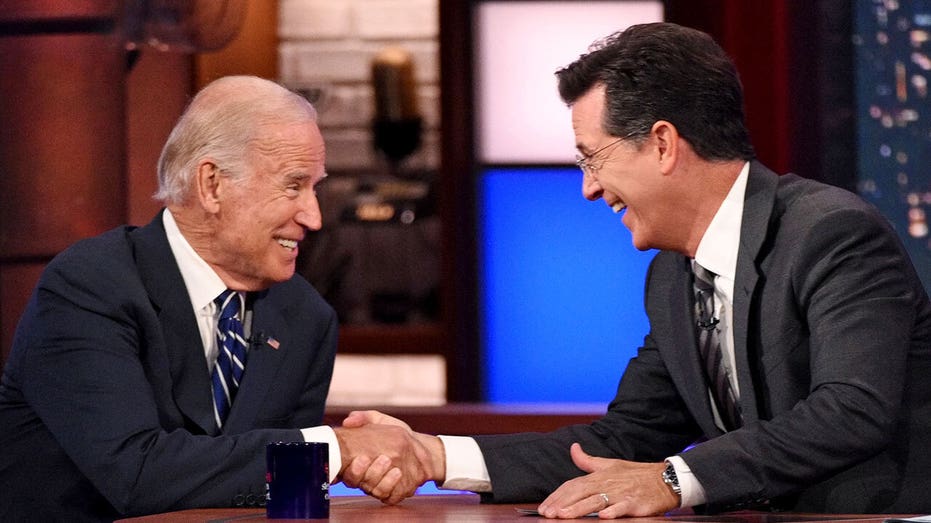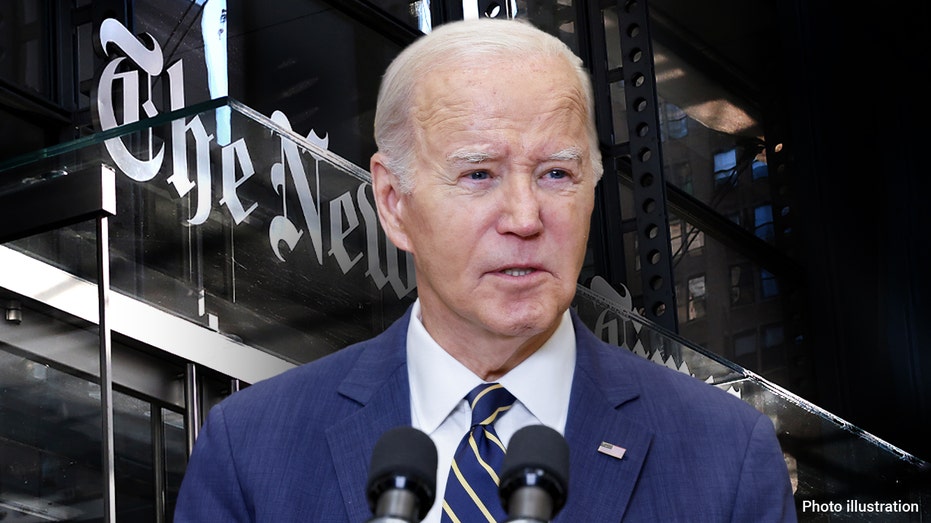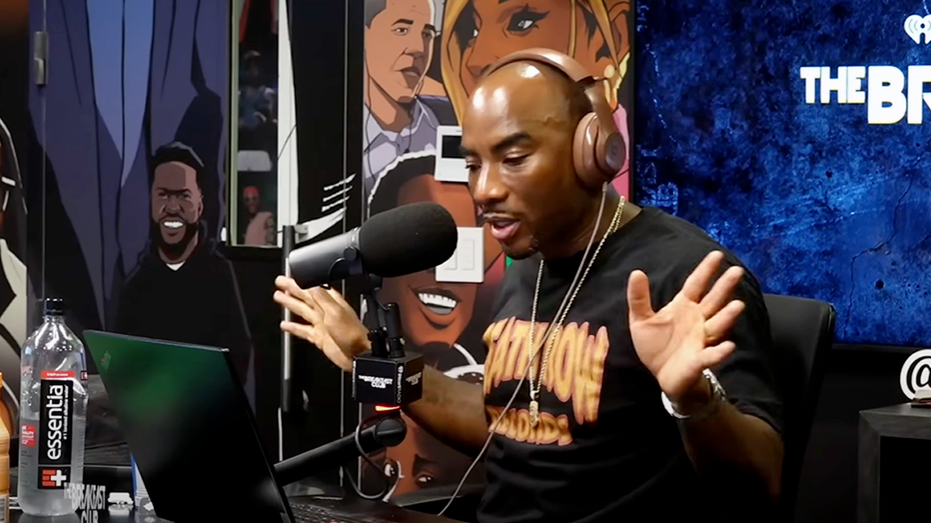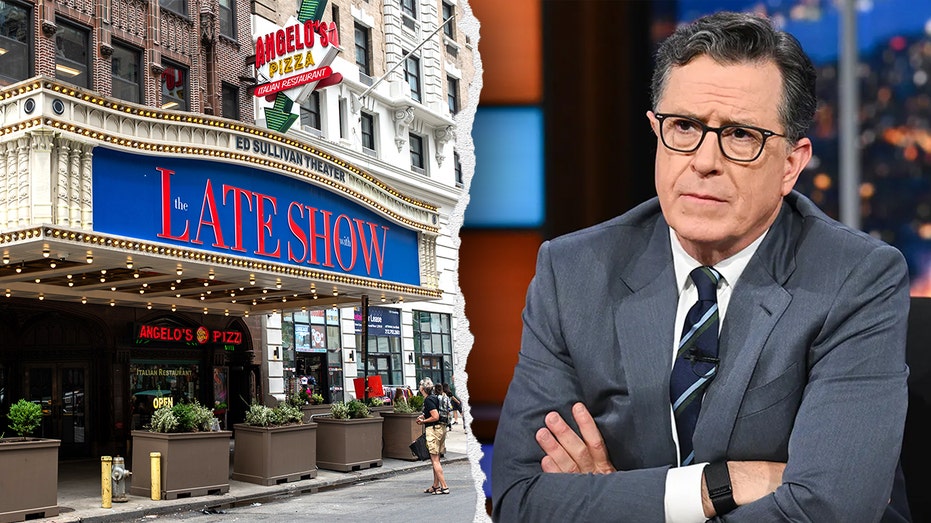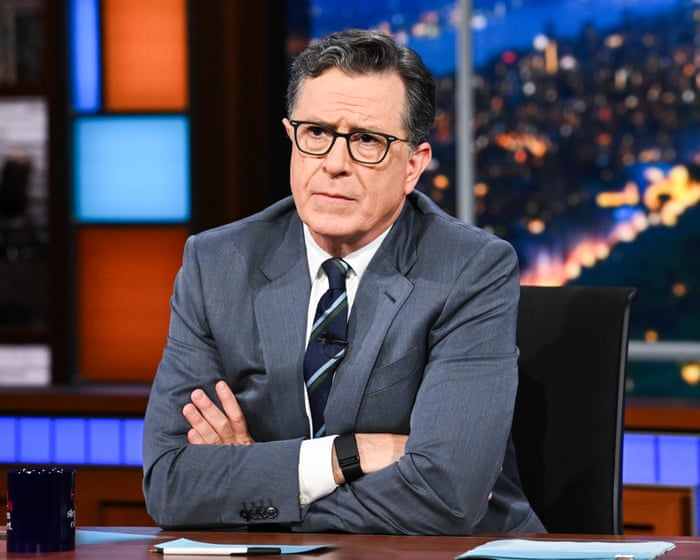See what’s trending right now
Media industryin U.S News
4 hours agoState media's influence shifts while late-night TV faces scrutiny over political bias, with Colbert's partisan moments and cancellation sparking debate on corporate media alignment.
U.S News
State media are dead — long live state media
NeutralU.S News
This piece argues that traditional state-run media outlets are losing their grip as market forces and public demand push for more independent journalism. The author suggests that while state media may not disappear entirely, their influence is waning because audiences are seeking out alternative sources that better reflect their interests—something state-controlled outlets often fail to do.
Editor’s Note: Whether you love or hate state-run media, their role in shaping public opinion isn't what it used to be. People are voting with their attention, and that shift could reshape how information flows in societies where government-controlled news has long dominated. It's a sign of bigger changes in how we consume—and trust—media.
Colbert's most partisan moments as 'Late Show' host, from leading Biden fundraiser to dancing with Schumer
NeutralU.S News
Stephen Colbert, the longtime host of The Late Show, has never shied away from political humor—or political stances. From hosting a fundraiser for President Biden to sharing a lighthearted dance with Senator Chuck Schumer, Colbert's tenure has been peppered with moments that blur the line between comedian and partisan figure. With news that the show will wrap up in 2026, this piece looks back at some of his most overtly political moments over the past decade.
Editor’s Note: Late-night comedy has always had a political edge, but Colbert's approach—especially after his Colbert Report days—has been uniquely intertwined with real-world activism and Democratic Party alignment. As the show heads toward its finale, this reflection matters because it highlights how comedy and politics have become increasingly inseparable in modern media—raising questions about the role entertainers play in shaping public opinion.
Tapper hits CBS parent over Colbert cancellation: Paramount in a 'bend-the-knee phase’
NegativeU.S News
CNN's Jake Tapper slammed Paramount Global, CBS's parent company, for canceling The Late Show with Stephen Colbert, suggesting the move was a capitulation to Donald Trump’s aversion to being mocked. Tapper framed it as part of a broader pattern of media companies yielding to political pressure, using the phrase "bend-the-knee phase" to imply surrender.
Editor’s Note: This isn’t just about a late-night show getting axed—it’s a flashpoint in the ongoing tension between entertainment, corporate interests, and political influence. If networks start pulling punches to avoid backlash, it raises questions about who’s really calling the shots in media. For viewers, it’s a reminder that what stays on air isn’t always just about ratings.
Livvy Dunne again calls out New York Times for story about her with infamous 'Sex Sells' headline
NegativeU.S News
LSU gymnast and social media star Livvy Dunne is calling out the New York Times—again—for a past article about her that used the controversial headline "Sex Sells." Dunne says the paper photographed her without proper context, then slapped on that reductive tagline. Ironically, she credits the backlash for helping land her a Sports Illustrated feature, turning a frustrating moment into a career boost.
Editor’s Note: This isn’t just about a headline—it’s a snapshot of how young female athletes are often framed in the media. Dunne’s pushback highlights the tension between sensationalism and respect, especially for women in sports who navigate both athletic achievement and public perception. It’s a reminder that words matter, and so does who gets to tell the story.
Biden's feud with the New York Times, his controversial autopen interview, and why it matters
NegativeU.S News
The Biden administration and The New York Times have been at odds for years over the president's reluctance to sit for interviews with the paper. But last week, Biden finally gave in—sort of. He used an autopen (a machine that replicates a person's signature) to "answer" written questions, a move that critics call evasive and supporters argue is just practical. The feud highlights tensions between the White House and a major media outlet, raising questions about transparency and access.
Editor’s Note: This isn't just about a grudge match between Biden and the Times—it’s a window into how this administration handles the press. Avoiding tough interviews or resorting to workarounds like the autopen can fuel perceptions of opacity, especially when trust in institutions is already shaky. For voters and journalists alike, it’s a reminder that how leaders engage (or don’t) with the media still matters.
An NPR member station manager assesses the future after Congress cuts federal funding
NegativeU.S News
The manager of North Country Public Radio, Mitch Teich, sat down with NPR’s Scott Simon to discuss the real-world impact of Congress slashing federal funding for public media. Teich shared concerns about how these cuts could threaten local journalism, programming, and the station’s ability to serve rural communities—especially in regions where public radio is a lifeline for news and culture.
Editor’s Note: Public broadcasting isn’t just about national shows—it’s often the backbone of local news in areas commercial outlets ignore. Losing federal support could mean fewer reporters, weaker coverage, and even station closures in places that rely on it most. This isn’t just a budget line item; it’s about who gets to tell—and hear—their stories.
Charlamagne accuses Trump of trying to 'make America North Korea' by engaging in 'authoritarian rule' on media
NegativeU.S News
Popular radio host Charlamagne Tha God slammed CBS and Paramount for abruptly canceling Stephen Colbert’s show, calling them the "Donkey of the Day." He didn’t stop there—he tied the move to former President Trump, accusing him of pushing for "authoritarian rule" over the media, comparing it to North Korea’s tight grip on information. Essentially, Charlamagne sees this as part of a broader pattern of silencing critics and controlling narratives.
Editor’s Note: This isn’t just about a late-night show getting pulled—it’s a flashpoint in the ongoing debate over free speech, media control, and political influence. Charlamagne’s fiery take reflects growing concerns about how powerful figures might shape what we see and hear, especially as we head deeper into election season. If media decisions start feeling politically motivated, that’s a big deal for democracy.
Colbert's 'Late Show' was reportedly losing CBS $40M a year as critics speculate politics drove cancellation
NegativeU.S News
CBS was reportedly losing around $40 million annually on Stephen Colbert’s Late Show, according to a new report from Puck’s Matt Belloni. While critics have speculated that political backlash played a role in the show’s abrupt cancellation, the financial strain appears to be the primary driver. Colbert’s sharp political humor may have alienated some viewers, but the numbers suggest the real issue was simply bad business.
Editor’s Note: Late-night TV isn’t the cash cow it used to be, and even big names like Colbert aren’t immune to the bottom line. This cancellation highlights the tough economics of network television in an era of declining viewership and shifting ad dollars. Whether politics played a side role or not, the real story here is how hard it’s getting to make traditional TV profitable.
Democrats condemn CBS for axing Colbert show: ‘People deserve to know if this is politically motivated’
NegativeU.S News
Democrats are calling out CBS after the network abruptly canceled The Late Show with Stephen Colbert, raising suspicions that the move might be retaliation for Colbert’s recent criticism of Paramount (CBS’s parent company) over its legal settlement with Donald Trump. Lawmakers argue the timing—just days after Colbert’s on-air remarks—is too coincidental and demands scrutiny.
Editor’s Note: This isn’t just about a late-night show getting the axe—it’s a flashpoint in the ongoing tension between corporate media and political influence. If a network can yank a popular program over its host’s criticism, it raises big questions about who’s really pulling the strings in entertainment and news. For viewers, it’s a reminder that what stays on air (or gets cut) might have less to do with ratings and more to do with backroom power plays.
Why World Pulse Now?
Global Coverage
All major sources, one page
Emotional Lens
Feel the mood behind headlines
Trending Topics
Know what’s trending, globally
Read Less, Know More
Get summaries. Save time
Stay informed, save time
Learn moreLive Stats
Articles Processed
7,721
Trending Topics
105
Sources Monitored
204
Last Updated
2 hours ago
Live data processing
How it works1-Minute Daily Briefing
Stay sharp in 60 seconds. Get concise summaries of today’s biggest stories — markets, tech, sports, and more
Why World Pulse Now?
Global Coverage
All major sources, one page
Emotional Lens
Feel the mood behind headlines
Trending Topics
Know what’s trending, globally
Read Less, Know More
Get summaries. Save time
Stay informed, save time
Learn moreLive Stats
Articles Processed
7,721
Trending Topics
105
Sources Monitored
204
Last Updated
2 hours ago
Live data processing
How it works1-Minute Daily Briefing
Stay sharp in 60 seconds. Get concise summaries of today’s biggest stories — markets, tech, sports, and more

